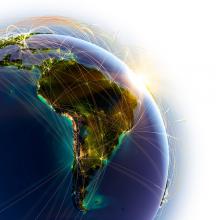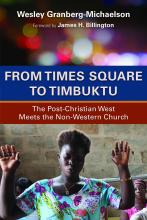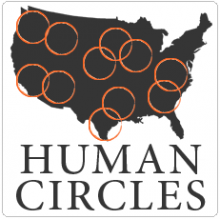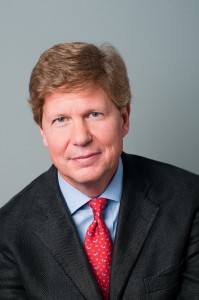Pentecostal

A global leader in ecumenical movement has alerted participants to the forthcoming World Council of Churches 10th Assembly in Busan, to be aware that they meet in rapidly changing times for world Christianity.
He says there are consequences for all church institutions, including the WCC itself.
Rev. Wesley Granberg-Michaelson, in a book timed to coincide with the gathering, says so fundamental are the changes now shaping the Christian world that the WCC will need to "commit to deep change."
It they don't, he says, they could remain largely isolated from the dynamic and growing parts of the church, especially from the global South.
His perceptions are likely to strike a chord at when the World Council of Churches meets in Busan from Oct.30 to Nov. 8 for its 10th Assembly, the highest decision making body of the grouping that represents some 560 million Christians.
Granberg-Michaelson, is a former member of the main governing body of the WCC, its central committee, and worked on the staff of the organization for six years, originally as director of the Church and Society programme.
He says the book, From Times Square to Timbuktu, is an attempt to describe the "growing gulf" occurring in world Christianity, primarily between the burgeoning Pentecostal and evangelical churches in the global South and the declining churches of the global North.
Cleats and Dignity
The civil rights struggle for African Americans happened in every sphere of life. Breaking the Line: The Season in Black College Football That Transformed the Sport and Changed the Course of Civil Rights, by Samuel G. Freedman, tells of two great black coaches in the tense year of 1967. Simon & Schuster
Catching Fire
One project of the USC Center for Religion and Civic Culture is the Pentecostal and Charismatic Research Initiative, which funded research in more than 20 countries. PCRI resources include the informative recent report, “Moved by the Spirit: Pentecostal and Charismatic Christianity in the Global South.” crcc.usc.edu/pcri

High-octane contemporary worship with smoke, flashing lights, and words on huge screens energize and empower 3,400 Pentecostals from 69 countries filling the Calvary Convention Centre in Kuala Lumpur, Malaysia,. This is the 23rd Pentecostal World Conference, a triennial gathering of pastors, leaders, and youth from around the globe. I’m here as part of a delegation from the Global Christian Forum, warmly invited, seated right in the front, and including representatives from the Lutheran, Orthodox, Seventh-Day Adventist, Mennonite, African-Instituted and Reformed church bodies, all members of the GCF steering committee. We’re easy to pick out of the crowd, since we’re the only ones who don’t spontaneously raise our hands in worship. I hope that image doesn’t make it to the big screens.
The explosive growth of Pentecostalism is an astonishing chapter in the story of world Christianity’s modern history. In 1970, Pentecostals (including charismatics in non-Pentecostal denominations) totaled about 62 million, or 5 percent of the total Christian population. In the four decades since, Pentecostals have grown at 4 times the rate of overall Christianity, and 4 times faster than the world’s population growth. Today they number about 600 million — one out of every four Christians in the world, and one out of every 12 people alive today. Most of this growth has come in the global South, in places like Africa, South America, and — yes — Malaysia.
The Pentecostal World Conference doesn’t look much like a typical denominational or ecumenical assembly. It’s more like a global revival service. Several of the world’s best-known Pentecostal preachers and leaders deliver stirring messages, complete with altar calls for those seeking the fresh empowerment of God’s Spirit in their lives and ministries. It’s a far cry from a Reformed Church in America General Synod, which I facilitated for many years. But these keynote speakers, along with the workshops held each day of the conference, open a window into global Pentecostalism’s present trends, challenges, and directions.
In writing From Times Square to Timbuktu: The Post-Christian West Meets the Non-Western Church, I found that one of the most intriguing questions I encountered is how rapidly growing forms of Christianity in the global South deal with social and economic issues within their societies. So in Kuala Lumpur, I was especially attentive to what might be said by the world’s Pentecostal leadership about the biblical call to justice and mercy. And I heard a lot that I wish I could now go back and add to my book.
JASON COOPER LOOKS out at the audience gathered in Restoration Church and asks, “Is it God’s will to heal?”
The former art school classroom, where the Pentecostal Dover, N.H., congregation meets, is nearly full, even though it is a Thursday evening in April. In addition to the 70 or so regular members who have come to hear Cooper preach, there are nearly a dozen visitors. One woman leans heavily on a cane. Another can’t turn her head from side to side and needs neck surgery.
They are casualties of slow research and expensive health care. According to the Kaiser Family Foundation, a nonprofit health-care policy think tank, health expenditures have increased 10-fold in the past 30 years. Though some health- care increases can be attributed to longer life spans, the high costs of drugs, hospital stays, and doctor visits have been compounded in the wake of the recession.
A young woman tensely watches Cooper as if he might explode at any minute. No one knows exactly what he will do. The audience fidgets in response to his question. Cooper, with his soul patch, slick black haircut, white button-down shirt, and stone-washed jeans, looks a little like a Vegas magician.
But Cooper is a traveling faith healer.
JUST A FEW dozen pages into Faith, Doubt, and Other Lines I've Crossed, evangelical pastor Jay Bakker pens what may be the best explanation for the Christian emphasis on church community that I've ever encountered. Noting that doubt can be "hard and scary," Bakker writes: "That's why we have one another, why we have community. We can go through those days of doubt together. I wouldn't be who I am today if it weren't for the people who have been there with me as I question everything."
Many writers have grappled with the challenge that doubt poses for religious believers. But in this honest, searching, and ultimately uplifting book, Bakker pulls doubt out of the shadows where many believers wrestle with it on their own and instead presents it as a reality that Christian communities can and should address together.
Bakker's approach to the often-taboo topic of questioning—or, as he puts it, "the sense that faith is crap, life is meaningless, there is no God, the Bible is a fraud, Jesus was just a charismatic man turned mythological figure if he existed at all"—is shaped by his childhood in a Pentecostal environment that left no room for doubt. As Bakker ruefully notes in the book's introduction, "I will probably be 80 years old and still introduced as Jay Bakker, son of Jim and Tammy Faye." That unusual background only provides the impetus, however, and not the substance for this book, which reads mostly as the stream-of-consciousness meditation of a man pushing and pulling at his faith to see if it holds up.

Pastor Mack Wolford — an eccentric snake handler and Pentecostal minister — was bitten by a deadly rattle snake at an outdoor service (or “evangelistic hootenanny”) at Panther Wildlife Management Area in West Va. He died shortly after, surrounded by friends and family, which, coincidentally, is the same way his father (also a pastor and snake handler) passed away nearly thirty years ago.
According to The Washington Post, “Wolford [like his father] believed that the Bible mandates that Christians handle serpents to test their faith in God -- and that, if they are bitten, they trust in God alone to heal them.” As the article points out, Wolford comes from a niche tradition in where the gospel words in Mark 16 are taken literally (and somewhat peculiarly), to “take up serpents and if they drink anything deadly, it will by no means hurt them…”

The New York City Human Circle will be replicated throughout across the nation, when faith leaders host Human Circles as members of the Sojourners National Mobilizing Circle, which is bringing together faith and community leaders to organize faith-rooted actions in their communities.
The purpose of these circles is not only to lobby for the poor but also with them.
The atlas also documents other dramatic trends, including the fragmentation of Christianity. New denominations, often borne out of strife and division, multiply endlessly. In Korea, for instance, there are now 69 different Presbyterian denominations. At the rate we are going, by 2025 there will be 55,000 separate denominations in the world!
That is an utter mess fueled by rivalry and confusion that hampers the church's witness and makes a mockery of God's call to live as parts of one body.
The atlas also documents the dramatic rise of revival movements throughout the world, and charts the story of Pentecostalism's rise. From its beginning a century ago, Pentecostalism now comprises a quarter of all Christians in the world. This fundamental change in Christianity's global composition, along with its geographical transformation, has created a dramatically different Christian footprint in the world.
The compelling story of the Global Christian Forum, shared with the more than 300 forum attendees (many of them new), was told in moving testimonies from Orthodox, Pentecostal, Evangelical, Catholic, and historic Protestant members of the forum's steering committee. ... It's remarkable to hear how an Egyptian surgeon became a Coptic Orthodox priest, or how a woman Anglican Bishop from New Zeland heard her calling to the priesthood as a teenager, long before her church ordained women. Story after story simply puts you in awe of God's grace.
The Global Christian Forum is the most exciting and promising ecumenical initiative I've participated in all my years of ministry. Its import can be summed up simply: This is the only place where the leadership of evangelical, Pentecostal, Catholic, historic Protestant and Orthodox churches -- which comprise all the major "families" of world Christianity -- are brought into sustained and intentional fellowship. In so doing, the Global Christian Forum is also responding to the dramatic shift of the center of Christianity from the North and West to the southern hemisphere.
 The puzzle here is not that readers of the Bible would tilt toward the political left. That, for me, as well as for thousands of other American evangelicals, is self-evident. Jesus, after all, summoned his followers to be peacemakers, to turn the other cheek, to welcome the stranger and to care for “the least of these.” He also expressed concern for the tiniest sparrow, a sentiment that should find some resonance in our environmental policies.
The puzzle here is not that readers of the Bible would tilt toward the political left. That, for me, as well as for thousands of other American evangelicals, is self-evident. Jesus, after all, summoned his followers to be peacemakers, to turn the other cheek, to welcome the stranger and to care for “the least of these.” He also expressed concern for the tiniest sparrow, a sentiment that should find some resonance in our environmental policies.
No, the real conundrum lies in the subtitle the editors of Christianity Today assigned to Franzen’s article, which was titled, “A Left-Leaning Text.” Adjacent to a picture of a Bible tilted about 45 degrees to the left, the editors added the subtitle: “Survey Surprise: Frequent Bible reading can turn you liberal (in some ways).”
The fact that anyone should register surprise that the Bible points toward the left should be the biggest surprise of all.
After having spoken at the Greenbelt Festival in England a number of times now, we at the Center for Action and Contemplation always hoped and planned that we create a similar festival for spirituality and the arts in the United States. We had nothing comparable, and it was a niche waiting and needing to be filled. Therefore, we were honored to be a part of the first Wild Goose Festival in North Carolina last June, and hope that we can convene a truly ecumenical, radical, and socially engaged crowd of people living at the intersection of justice, spirituality, and creativity -- and those who want to be!
Glenn Beck says Christians should leave churches that use the word "social justice." He says social justice is a code word for communism and Nazism.